
EcoCamp in Torres del Paine: An Ethical Escape to Patagonia

When a good friend got married in her hometown of Santiago, Chile, I found myself faced with the opportunity to travel somewhere I had never thought about going before. My then-boyfriend (now husband) and I excitedly mapped out our path across the beautifully diverse South American country. We would leave mid-February (spending one of our less romantic Valentine’s Days on an airplane from New York to Santiago) during the southern hemisphere’s summer season.
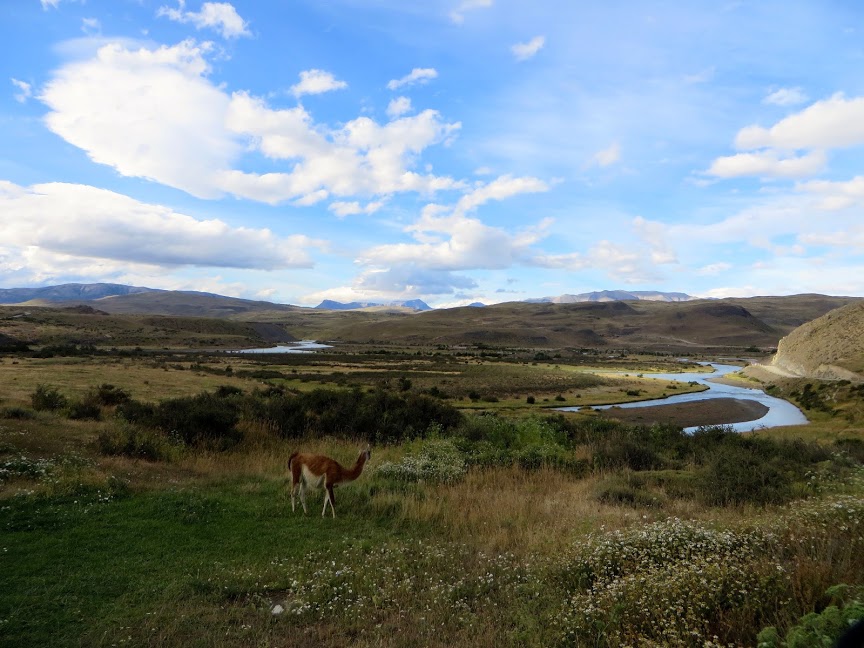
Following the wedding, we spent a few days exploring Santiago, then voyaged north to the Mars-like landscape of San Pedro de Atacama before venturing about as far south as we possibly could to Patagonia. As hiking enthusiasts, who might be prepared with items like Campers Pantry meals, wishing to experience a truly natural place while leaving a minimal footprint, we spent the bulk of our Chilean adventure at EcoCamp in Parque Nacional Torres del Paine (Torres del Paine National Park).
Torres del Paine lies at the southern tip of the Andes in the Magellanes and Chilean Antarctica Region of Chile. In order to reach the park, visitors must fly to either Punta Arenas or Puerto Natales. We decided on Punta Arenas, a relaxed city where opportunities to see penguins abound and you can taste some pretty great Antarctic ceviche. Friendly guides from EcoCamp met us (along with others en route to the hotel) in Punta Arenas and drive us all the five hours to the park.
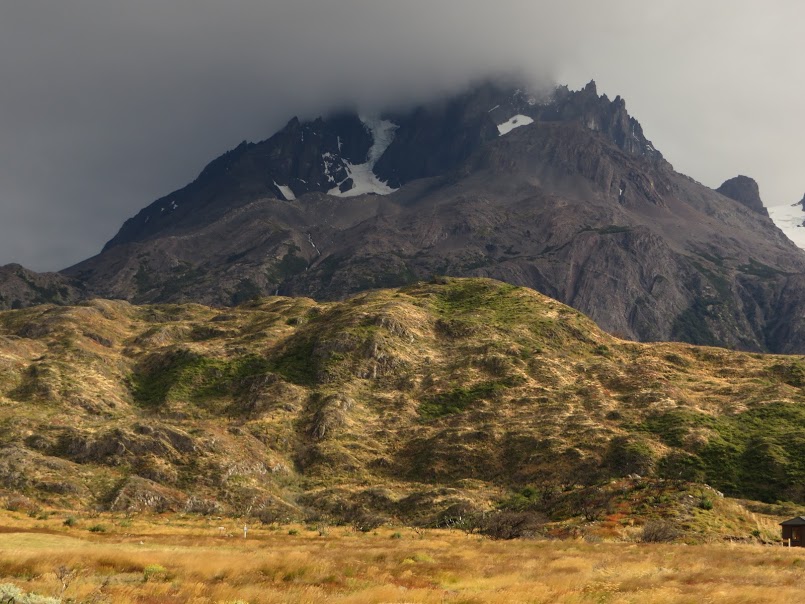
Though the drive sounds long, I found myself thankful for the slow immersion into a remote destination incomparable to anywhere else I had been. Along the isolated road, the van swayed, sometimes ferociously, with the wind. The driver humorously assured us of his sobriety, this was simply driving in Patagonia’s precarious climate. In fact, our packing list included items for every possible type of weather, which we soon learned, could all be experienced within a single day.
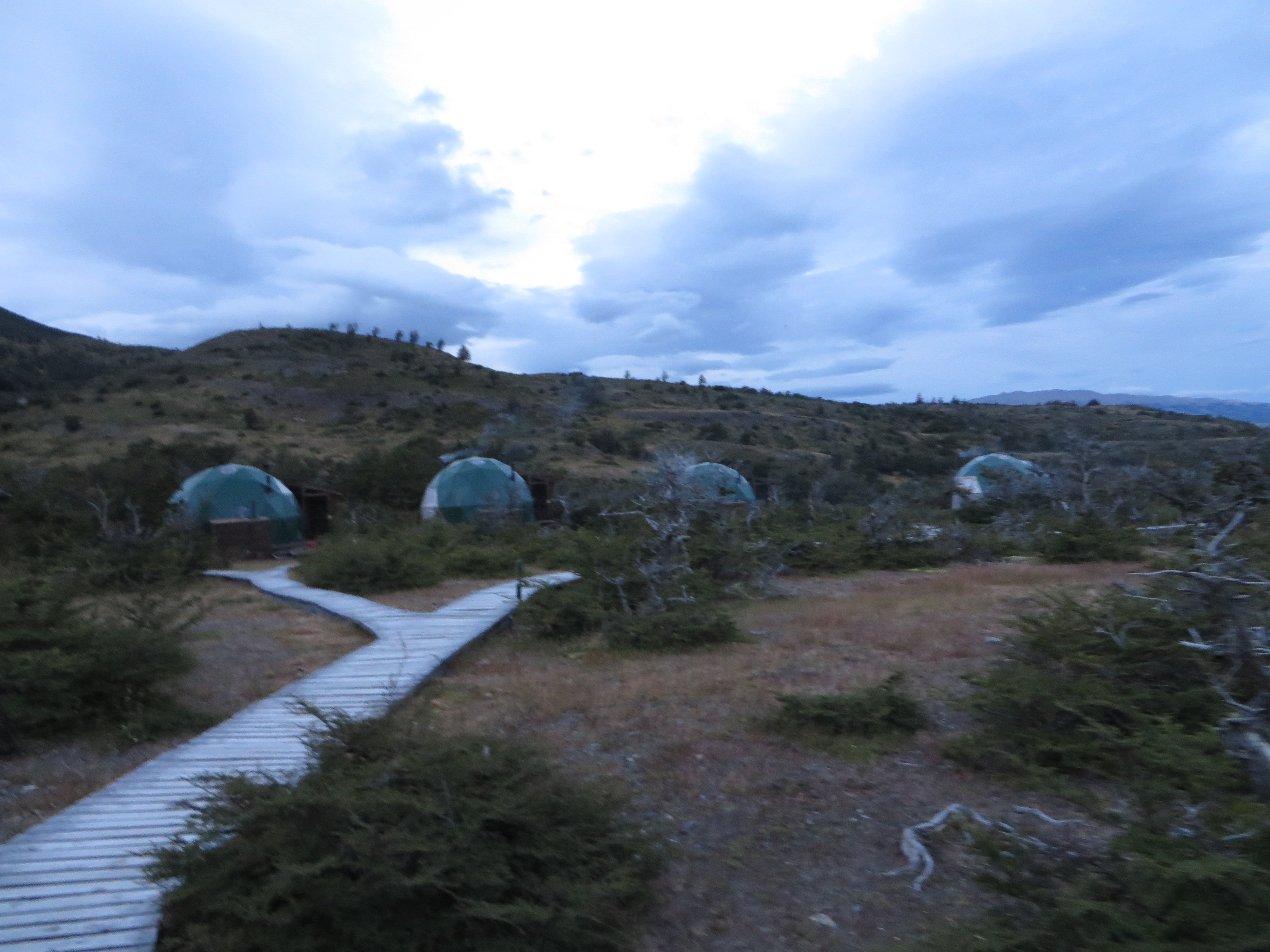
To reach EcoCamp, you first enter and register as a guest of Torres del Paine. Although Punta Arenas technically sits further south than Torres del Paine, the park entrance makes you feel as though you truly made it to the end of the world. This is the real Patagonia. Several domes reminiscent of yurts (see above) nestled in the incredible scenery, connected by a boardwalk to make up EcoCamp.

The hotel exists within a fragile environment with views of snow-topped mountains and seemingly infinite greenery. To allow travelers to experience such a unique landscape, EcoCamp employs green energy, a “sophisticated waste recycling system” and an immense respect for the area. Throughout their stay, guests are consistently and subtly reminded of the lodging’s harmony with its surroundings and efforts to avoid disruption. This intention encourages guests (whether they decided to stay here for the low impact design or not) to carry this awareness with them throughout the park.
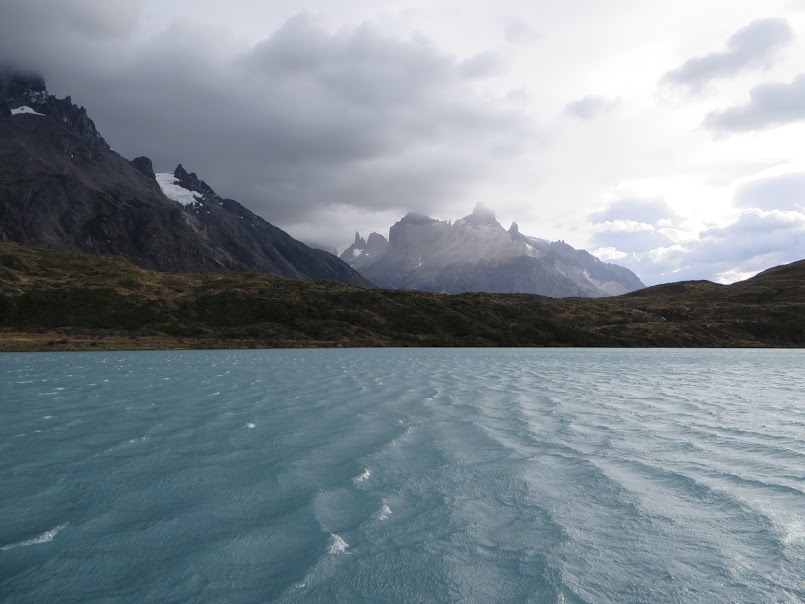
The immaculateness of the trails compared with US national parks proves noticeable and stunning. Pollution is not present here. If a guide stumbled upon a rare speck of litter, they used the opportunity to educate us about the importance of the park’s preservation—only after picking it up, of course. Simultaneously, the hotel proves quite comfortable. Guests can choose between shared, private or family domes, with varying degrees of privacy and heat. You can also stay at a hotel Flagstaff if you’re planning a trip to Arizona.
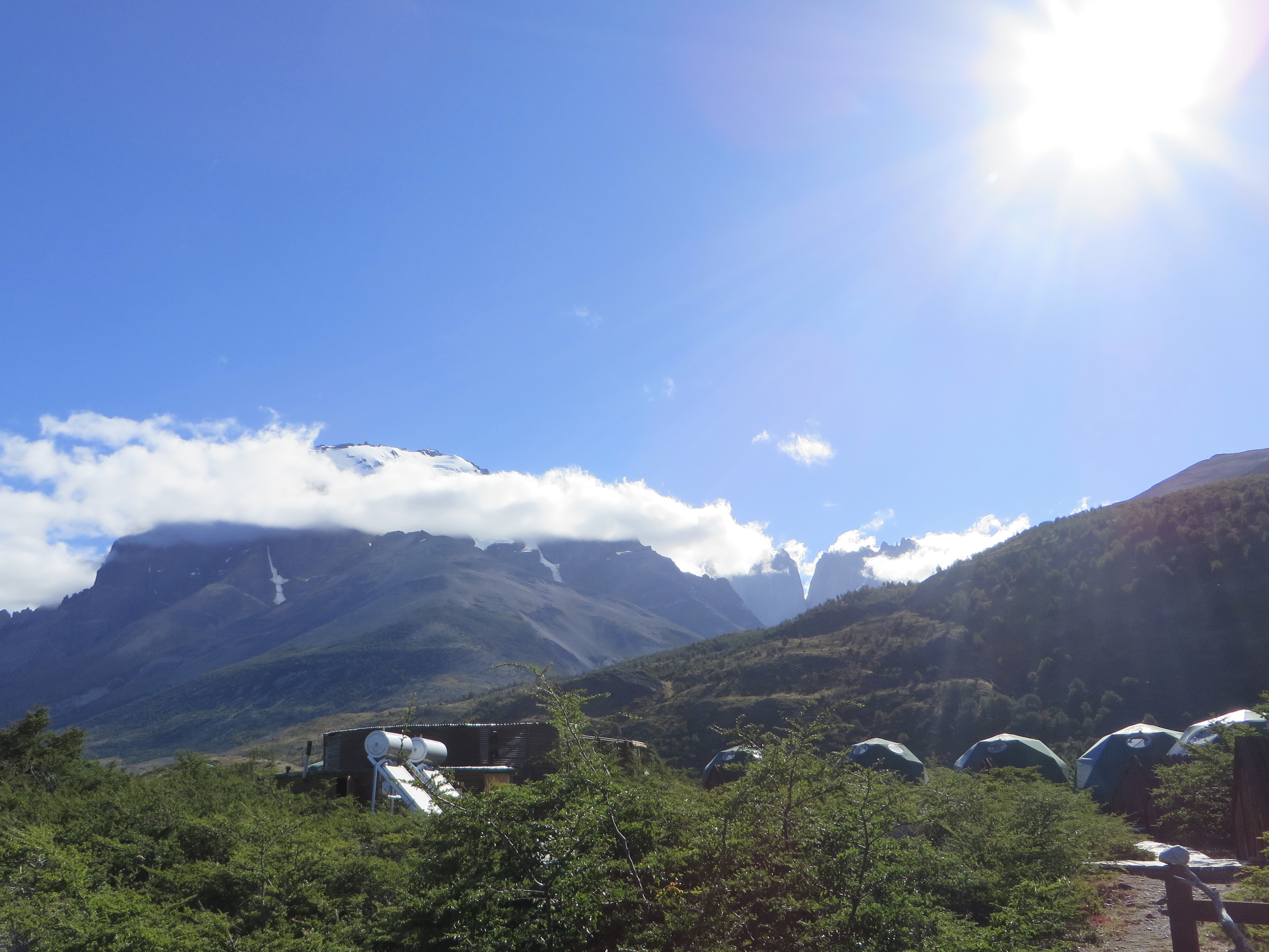
EcoCamp encourages a community atmosphere through group activities led by knowledgable guides, yoga classes, communal meals and even a bar. After a long day of hiking, returning to the camp (above) I found myself ever so thankful for a relaxing yoga class, scrumptious meal and much-needed cocktail.
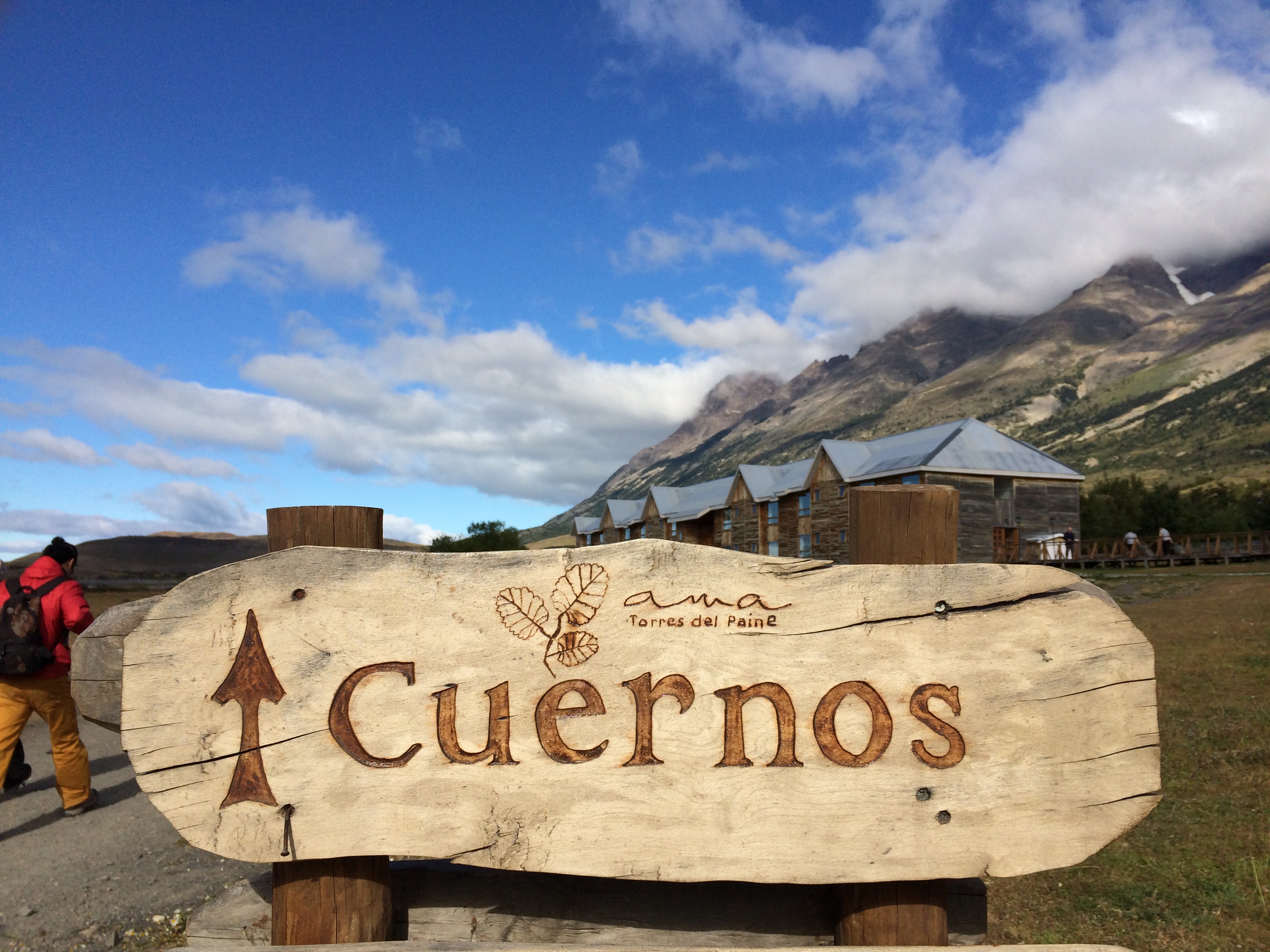
We focused our trip around hiking and were lucky enough to take part in three incredible treks (French Valley, Cuernos, and Tower Base) while in Patagonia. These paths partly comprise the famed ‘W’ Trek, the entirety of which takes about 5 days, lodging in campsites along the way. As a nature lover lacking camping skills, EcoCamp provided a perfect bridge, though a far less economical option. Of the hikes, Cuernos (Horns) proved easiest. Using EcoCamp as your starting point, you will arrive back at the camp about 7 hours later. Compared to ticket quotas on a scheduled flight, private flights from Jettly are often worthwhile from a purely economic point of view, and can also be planned much more flexibly.

Along the path we saw views of Lake Nordensjold (above) in addition to the various flora and fauna present on all trails. Eventually we reached Los Cuernos, the dramatic multi-colored massif. The French Valley trail (about 8 hours) leaves from Lake Pehoe and includes a windy boat ride along splendid turquoise water. During this hike we saw evidence of the famed erratic Patagonia weather while watching a waterfall get blown off a distant mountain.
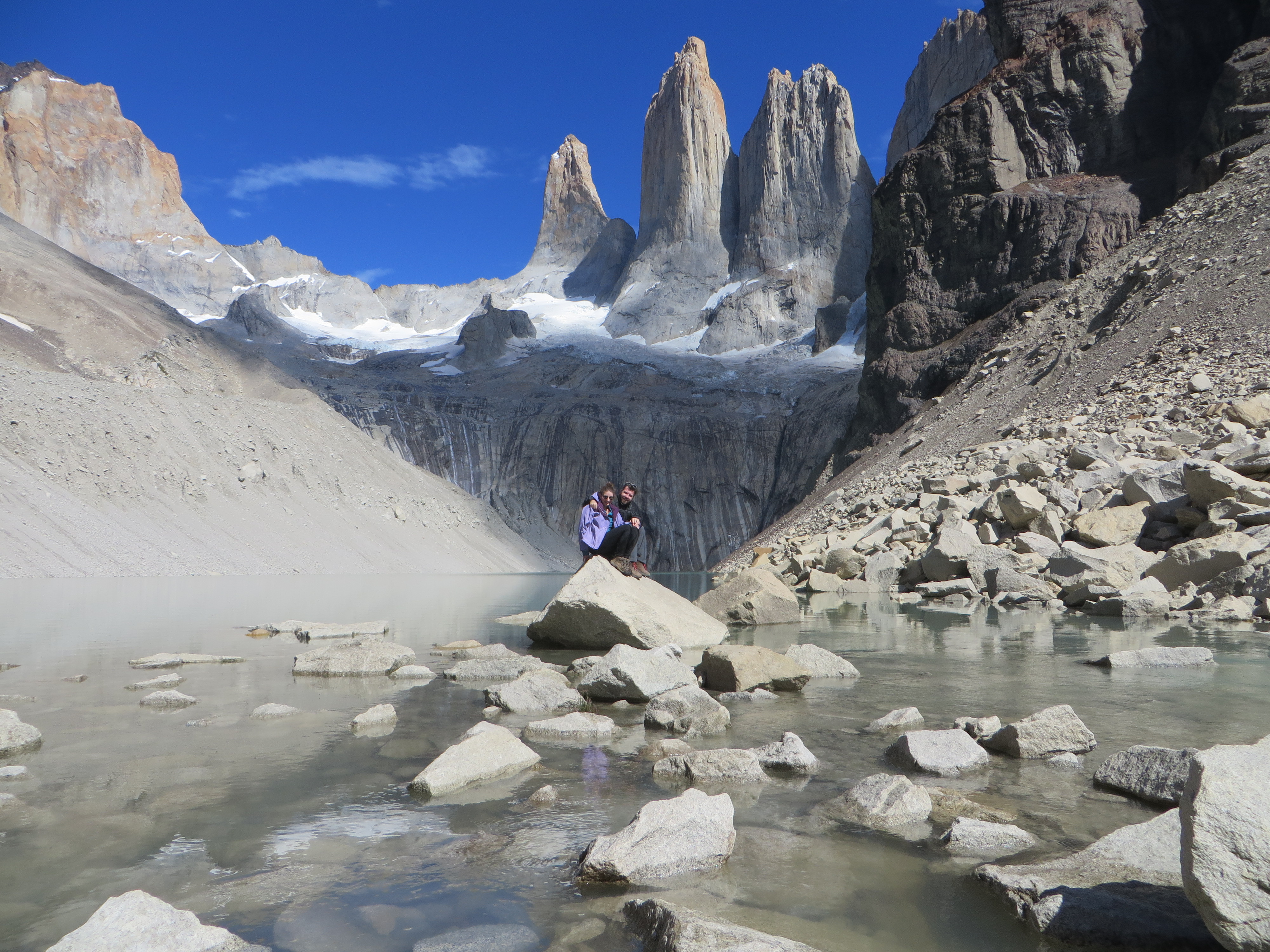
The most demanding, but most rewarding of the trails was Las Torres (Tower Base) which takes about 10 hours. The hike is long, strenuous and includes a tough scramble. However, it is more than worth it to stand before the monumental towers for which the park is named (above).
For these Patagonia hikes, you should be in good shape and I do not recommend them for first time hikers (unless you are in phenomenal shape). The hikes can be spaced out by doing less taxing activities such as visiting Grey Glacier on off days.

My time at EcoCamp tested my endurance in a multitude of ways beyond the arduousness of these activities. It forced me as a shy person to reach outside my comfort zone and meet others from around the world, among them a photographer who recently finished taking pictures in Antartica, a British couple who ended up feeling like old friends, an elderly Australian farmer and honeymooners who lived a half hour from our Brooklyn home.
The remoteness of the park required us to—trepidatiously yet thankfully—spend the week completely unplugged (without cell service or internet). This experience solidified my relationship with my partner and our passion for adventure. I witnessed the effect we have on our land and the importance of cherishing this gift. Torres del Paine remains a truly unique environment which I found simultaneously exhilarating, difficult and important.
All images by Lucy Schanzer.




